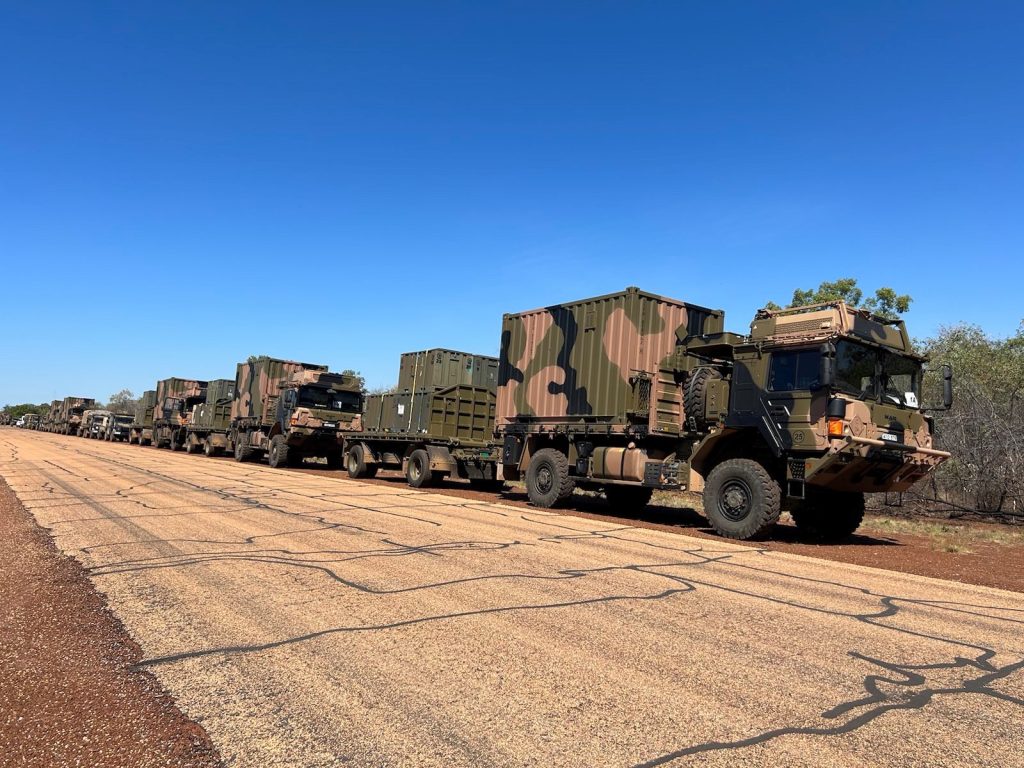
Since the 2023 defence strategic review, discussion of northern Australia and its maritime and air approaches has reached its highest tempo since the 1940s. The declassified version of the review released in April mentioned northern Australia and its approaches more than 30 times. While the joint statement from the 2023 Australia–United States Ministerial Consultations (AUSMIN) mentions the north just once, it was more specific, naming Royal Australian Air Force Bases Tindal, Scherger and Curtin.
For those living in northern Australia, this recognition of the importance of their region is promising. However, many need more clarity about if, when and how the government will deliver on its announcements. More than a few remain jaded by similar statements from the past, like those made in the 2012 Australian Defence Force posture review and the 2013 defence white paper, that Defence didn’t implement.
The DSR made it clear that the ADF must have the capacity to ‘deter through denial any adversary’s attempt to project power against Australia through our northern approaches’ and, more specifically, that the army ‘must be optimised for littoral operations in our northern land and maritime spaces and provide a long-range strike capability’, while the air force ‘must provide the air support for joint operations in our north by conducting surveillance, air defence, strike and air transport’.
The government has acknowledged that immediate actions are needed to reprioritise Defence’s capability, including ‘improving the ADF’s ability to operate from Australia’s northern bases’, as future operational success depends on their use as a platform for logistics support, denial and deterrence. The extensive work required to get these facilities fit for purpose includes hardening; growing dispersal, runway and apron capacity for aircraft; fuel storage and supply; guided weapons and explosive ordnance storage; greater connectivity for essential mission planning activities; accommodation and life support; and security. The government has agreed that comprehensive upgrades on these bases must commence immediately.
July’s AUSMIN meetings affirmed the two nations’ intention to continue progressing upgrades at key Australian bases in the north, including at Darwin and Tindal, supported by site surveys to scope new, additional upgrades for RAAF Bases Scherger and Curtin.
Project management for works this extensive and geographically dispersed would be no easy feat anywhere in Australia, and it’s even more difficult in northern Australia. Close industry engagement, built on trust, is needed to ensure better outcomes in this challenging environment.
Defence regularly meets with private-sector and public-sector representatives across the north on estate issues, but extensive lists of requirements and variable timelines are daunting for stakeholders, especially when they are short on detail. There needs to be more clarity on what the DSR and other reviews and force posture initiatives mean for businesses and communities.
The government must make defence infrastructure decisions in the context of the commercial and economic environment. For example, in many parts of northern Australia, the construction industry is already heavily committed until 2027. To enhance bases and their supporting infrastructure, Defence will need to carefully signal its intent and provide guidelines to the industry so that it can grow its capacity accordingly.
Networked bases don’t stand alone. They require connective tissue like transport and digital infrastructure, and we should have learned from Ukraine that whole-of-society resilience and preparedness are crucial to forming this. Building social and economic infrastructure and strengthening preparedness in northern Australia are team sports that require cooperation across the private and public sectors, and communication has been too mixed.
The 2023 AUSMIN statement reaffirmed a commitment to a combined logistics, sustainment and maintenance enterprise (CoLSME), and following Exercise Talisman Sabre 2023, Australia and the US announced their intent to conduct a proof-of-principle prepositioning of US Army materiel in Bandiana, Victoria. The movement of these stores via road train is expected to cost around US$4 million.
Bandiana is a long way from northern Australia. Unintentionally, the decision conveys a lack of commitment to northern Australia, despite the region anticipating the longer-term establishment of a new logistics support area in Queensland designed to enhance interoperability and crisis responsiveness. While CoLSME activity in north Queensland will support the US Army and operations in the Pacific, northern Australia is large and more will need to be done in Darwin and Tindall. The Bandiana and north Queensland choices send mixed messages—especially to Northern Territory communities and industry—and raise questions over Defence’s commitment to Darwin and Tindall.
The government shouldn’t take the ADF’s or the US military’s social licence to operate in Australia’s north for granted. Trust is essential—there are already perceived gaps between stated and actual Defence activity in northern Australia, and even though for years Defence has advised NT officials that army helicopters will remain based in Darwin , they appear set to be relocated to Townsville. At last month’s Developing Northern Australia Conference, Jonathon Pavetto of AEC Group estimated that personnel presence in northern Australia had declined by 3% over the previous year.
Neither Australia’s nor the US’s defence organisation can be everywhere in northern Australia, and they can’t be expected to hold sole responsibility for building national preparedness. However, both must engage with those who live and work in the region with greater clarity if they hope to achieve their goals.

